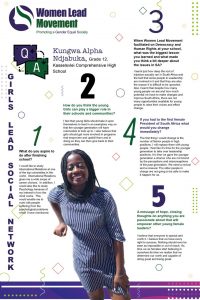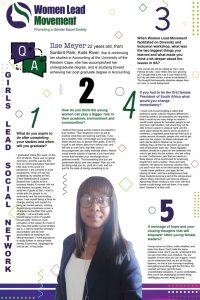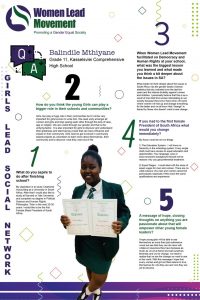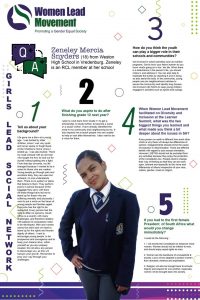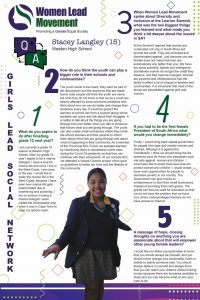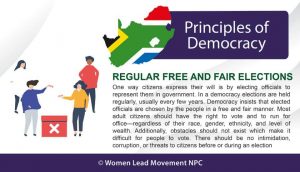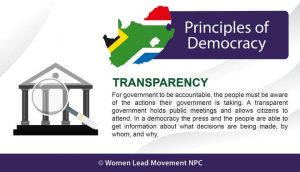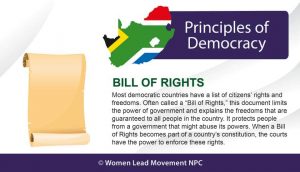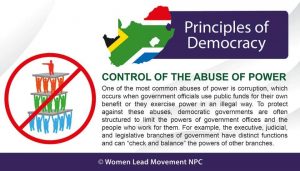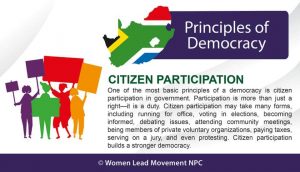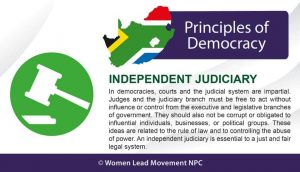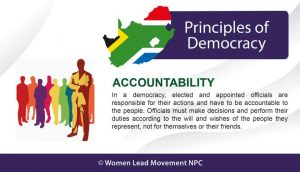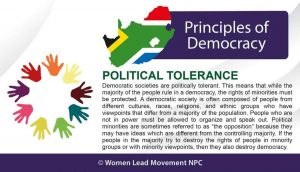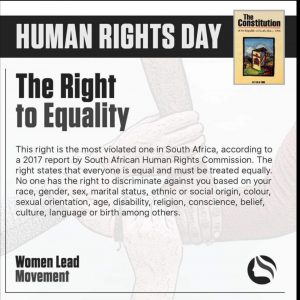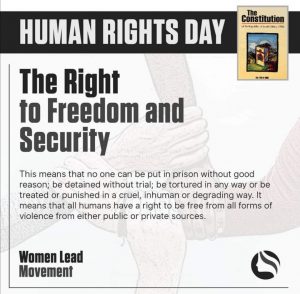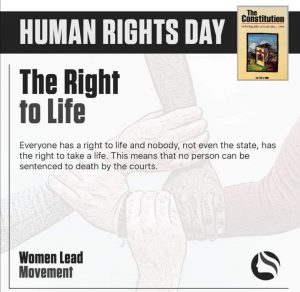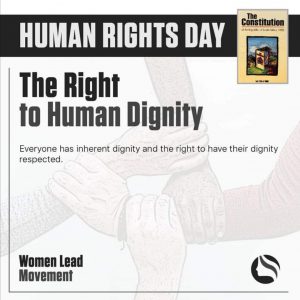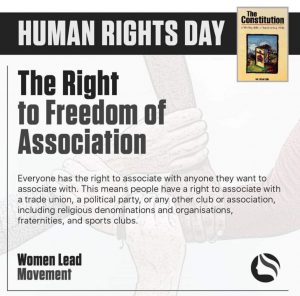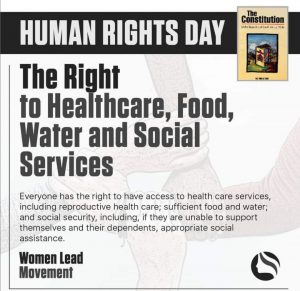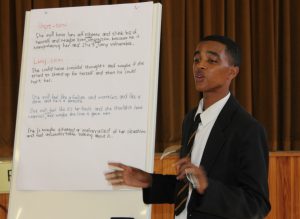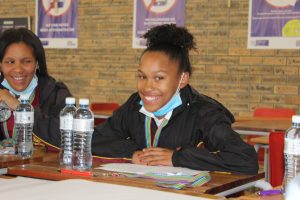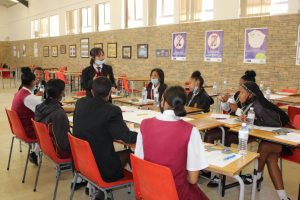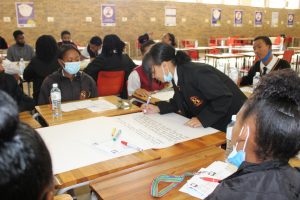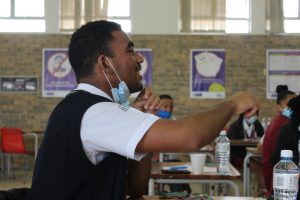Since 2018, Women Lead Movement has worked in rural, urban, peri-urban and township communities directly reaching more than 3000 beneficiaries in 15 communities. Our target group are people between the ages of 14-55 of all gender, racial, cultural and religious backgrounds. Women Lead Movement through its extensive work contributes towards the United Nations Sustainable Development Goals 3, 5, 10, 16



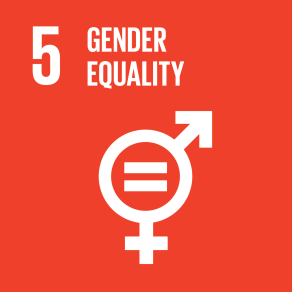

AREA 1: GENDER BASED VIOLENCE & GENDER INEQUALITY



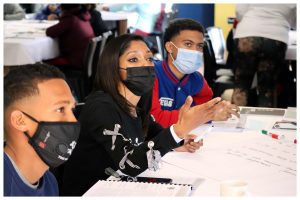







The GBV Awareness and Prevention programme will be rolled out over a period of 9 months in 8 communities across the City of Cape Town targeting 800-1000 beneficiaries between the ages of 18-35 years old (500x men and 500x women). Women Lead Movement identified Bellville South, Bonteheuwel, Atlantis, Deft, Lavender Hill, Mitchells Plain, Khayelitsha and Mfuleni as the communities to implement this groundbreaking programme. The communities within the City of Cape Town have been identified as those with highest prevalence of Gender-Based Violence in South Africa which includes, amongst other, domestic, economic and sexual violence. These are also communities with high levels of poverty, unemployment and lack of public involvement. Women Lead Movement will be active in each community for 14 days implementing their training and capacity building workshops, developing actions plans and conducting Trauma Healing sessions and educating on Substance abuse and its link to GBV. The overall goal of the programme is to build capacity, designate information and provide tools and strategies to women and men in order to eradicate and/or reduce gender-based violence and achieve violence-free communities
Women Lead Movement, supported by its partners Brand South Africa and the Sanlam Foundation conducted Gender Based Violence Prevention Workshops in 2x High Schools in the Western Cape where GBV is highly prevalent. The two schools identified were Tuscany Glen High School and Bellville South High School in Cape Town. The workshop focussed specifically on learners in Grade 10 to Grade 12. The key focus areas of the workshops were: Root causes of GBV (Patriarchy & Gender Inequality); Gender Stereotyping; Healthy and Unhealthy Masculinity; Values and Attitudes about Gender; Forms of GBV; Impact of GBV at an Individual, Family and Community level and Ideas and Strategies to deal with GBV in school and the larger community. The young minds were challenged to develop their own strategies that could be applied in schools and communities to prevent GBV. The learners left inspired, informed and with an understanding of the important role that the youth play to reduce and prevent GBV.
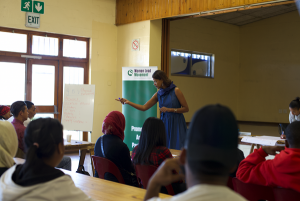



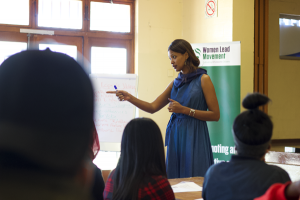

Women Lead Movement conducted an education and capacity building workshop with 80 young men and women on gender inequality and gender based violence in Mitchell’s Plain community. The objectives of the training were to develop the participants’ understanding of Gender-Based Violence; equip participants with tools and strategies to prevent Gender-Based Violence; and to raise awareness of Patriarchy and Gender Inequality: how it manifests and the impact thereof on women and girls.
Some of the Tools & Strategies discussed were:
- Women and girls’ empowerment and agency (Agency is an actor’s or group’s ability to make purposeful choices)
- Increase women’s political participation
- Promotion and protection of women’s right to have control and decide freely over matters related to their sexuality, including sexual and reproductive health, family-planning possibilities, and HIV/Aids prevention
- Incorporate men and boys as perpetrators, as victims/survivors and as agents of change
- Changing toxic attitudes, mindsets and behaviour that lead to GBV
AREA 2: SEXUAL AND REPRODUCTIVE HEALTH & RIGHTS

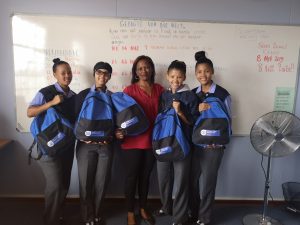

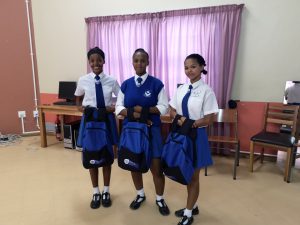


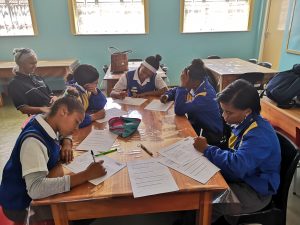

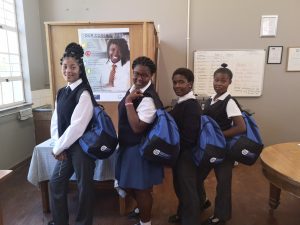
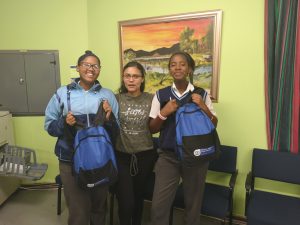
The five-day Mentorship Camp forms part of the Rural Female Youth Mentorship Project (RFYMP) that aims to equip young girls and women in rural areas with basic life skills in order to reduce the high number of school drop-outs, improve sexual health and prevent alcohol and drug abuse. A group of 25 young rural girls from the prioritised rural development nodes of the Western Cape received mentorship during the 5-day Rural Youth Mentorship Camp. The young girls were educated on basic life skills, substance abuse awareness, prevention of teenage pregnancy, awareness raising on HIV/AIDS and STDs, conflict management, career guidance and awareness on gender-based violence. Mr Brighton Shumba, the Project Manager for the Rural Female Youth Mentorship project highlighted the importance of women mentorship, stating that “[w]hen we support the growth and empowerment of women and girls, we transform our communities and raise the quality of life for everyone. This is because when women lead, they not only lead their families, they lead in their community, they fight for their children, and they give a voice to issues that are crucial to our collective future. Mentoring encourages their ambition and empowers their confidence”.
AREA 3: HEALTHY AND UNHEALTHY MASCULINITY


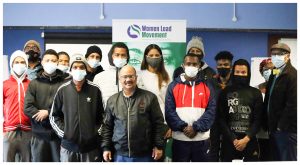





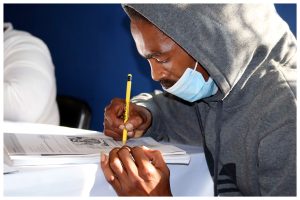
We implemented this programme in 8 communities and involved young men within the communities between the ages of 18 and 40 engaging them on male identity formation, gender stereotypes and gender-based violence. Our programme recognizes the need for boys and men to play a critical role in transforming gender beliefs and ideals of masculinity, in order to end gender-based violence.
Our programme had the following objectives
- To gain an understanding on the role of certain important players in raising emotionally whole and healthy men
- To understand the influence and impact of the father, mother and society on masculinity.
- To understand the link between negative masculinities and violence.
- To equip boys and young men with tools to deal anger
- To understand the difference between their roles and purpose as men.
- To discuss strategies for a paradigm shift from negative to positive masculinities
AREA 4:HUMAN RIGHTS AND DEMOCRACY
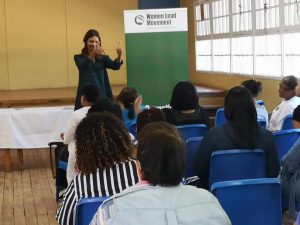


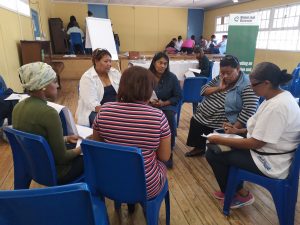



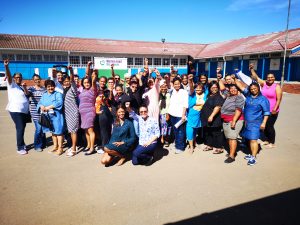
Women Lead Movement conducted an educational workshops in Bellville South with a focus on Democracy and the Constitution. The workshop was aimed at increasing the participants’ knowledge and understanding of the Bill of Rights and their responsibilities as citizens of South Africa. The majority of the participants never knew how to practically apply these principles and enforce their constitutionally entrenched human rights, and therefore derived great value from the workshops. Aspects that were covered as part of the training session:
- History of South Africa (Apartheid, Democracy and Final Constitution of 1996);
- Values of the Constitution;
- Nature of Human Rights;
- Difference between Legal Rights, Moral Rights and Human Rights;
- Bill of Rights (and Responsibilities) i.e. Socio-economic Rights, Civil and Political Rights, Cultural Rights; and
- Practical group activities whereby the participants were required to apply their knowledge of the Constitution and principles of democracy to address the issues faced in the community.

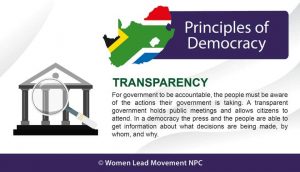
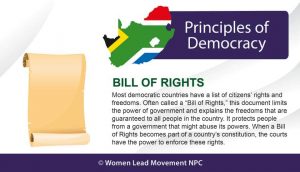



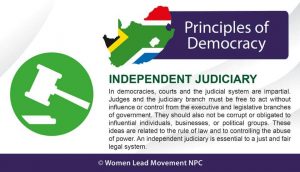
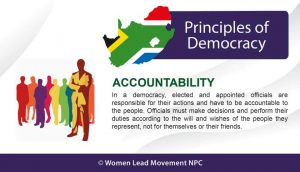
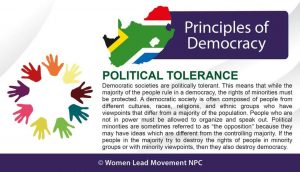

Women Lead Movement conducted capacity building workshops at numerous high schools and communities on “Understanding the principles of democracy” and the “Responsibilities of the youth in terms of the Constitution”. The following democratic principles were covered during the training session:
- Accepting the Results of Elections;
- Accountability;
- Bill of Rights;
- Citizen Participation;
- Control of the Abuse of Power;
- Economic Freedom;
- Equality;
- Human Rights;
- Independent Judiciary;
- Multi-Party System;
- Political Tolerance;
- The Rule of Law;
- Regular, Free and Fair Elections; and
- Transparency.
AREA 5: COMMUNITY ACTION PLANNING & PARTICIPATION
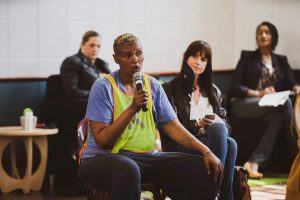



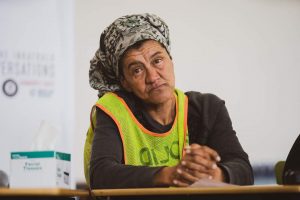


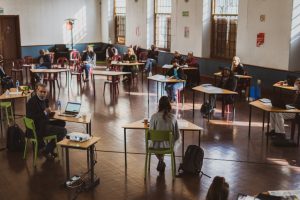

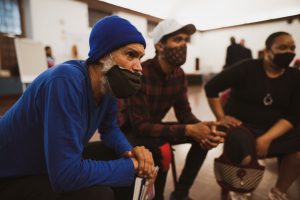
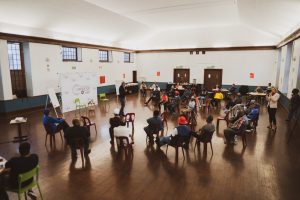



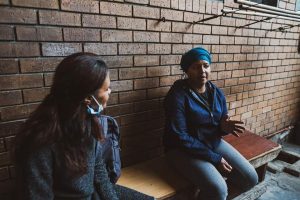





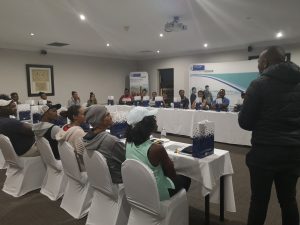



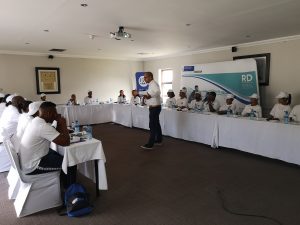
This programme was aimed at creating awareness amongst rural youth and facilitating a platform where they are able to engage relevant government departments and key stakeholders on issues relating to substance abuse and other social ills; career opportunities and application processes; job readiness. The majority of participants acknowledged that they have a role to play as leaders of change in their local communities by taking back what they have learnt at the camp in order to begin to address the following social ills and challenges. In the spirit of promoting an active and participatory citizenry the youth committed to:
- Get involved in empowerment programmes in the community and encourage other young people to also participate;
- Get involved in the communities’ social programmes including youth camps;
- Motivate victims of abuse and drug addicts to get involved / take part in these programmes; Get involved in awareness-raising / educational programmes in their communities;
- Motivate/encourage/inspire the youth to become social entrepreneurs and inform them that they can do many things out of recycled material.

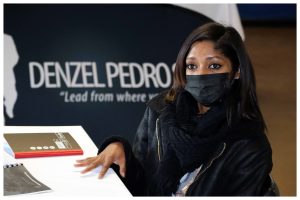

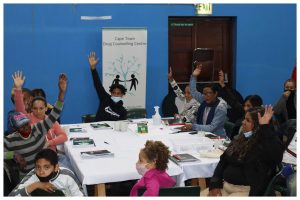
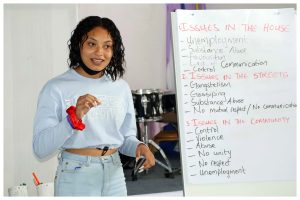
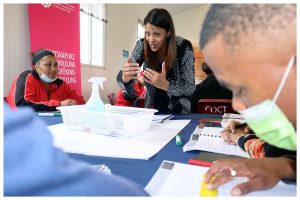
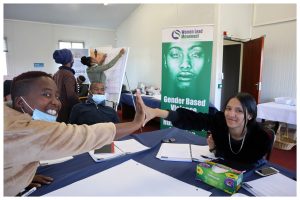


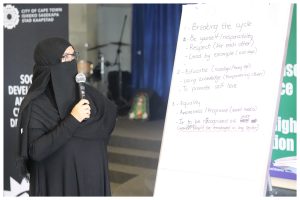
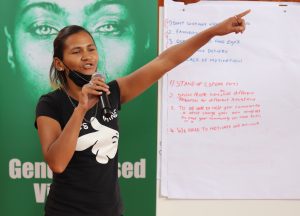
WLM established 8 independent Community Action Groups in 2021 in the City of Cape Town. The session on Community Action Planning had the following objectives:
- To gain knowledge and understanding about Community Participation and Community Action Plans (CAPs)
- To understand the inherent advantages of Community Participation and Community Action Plans (CAPs) as a tool for community development
- To Identify root causes for community apathy and finding constructive solutions to encourage and increase community involvement in decision making and social, political and economic activities in communities
- To gain knowledge and skills on how to develop and implement Community Action Plans
- To gain valuable insights into the importance of Active Citizenship in a Democracy
AREA 6: HUMANITARIAN OUTREACH
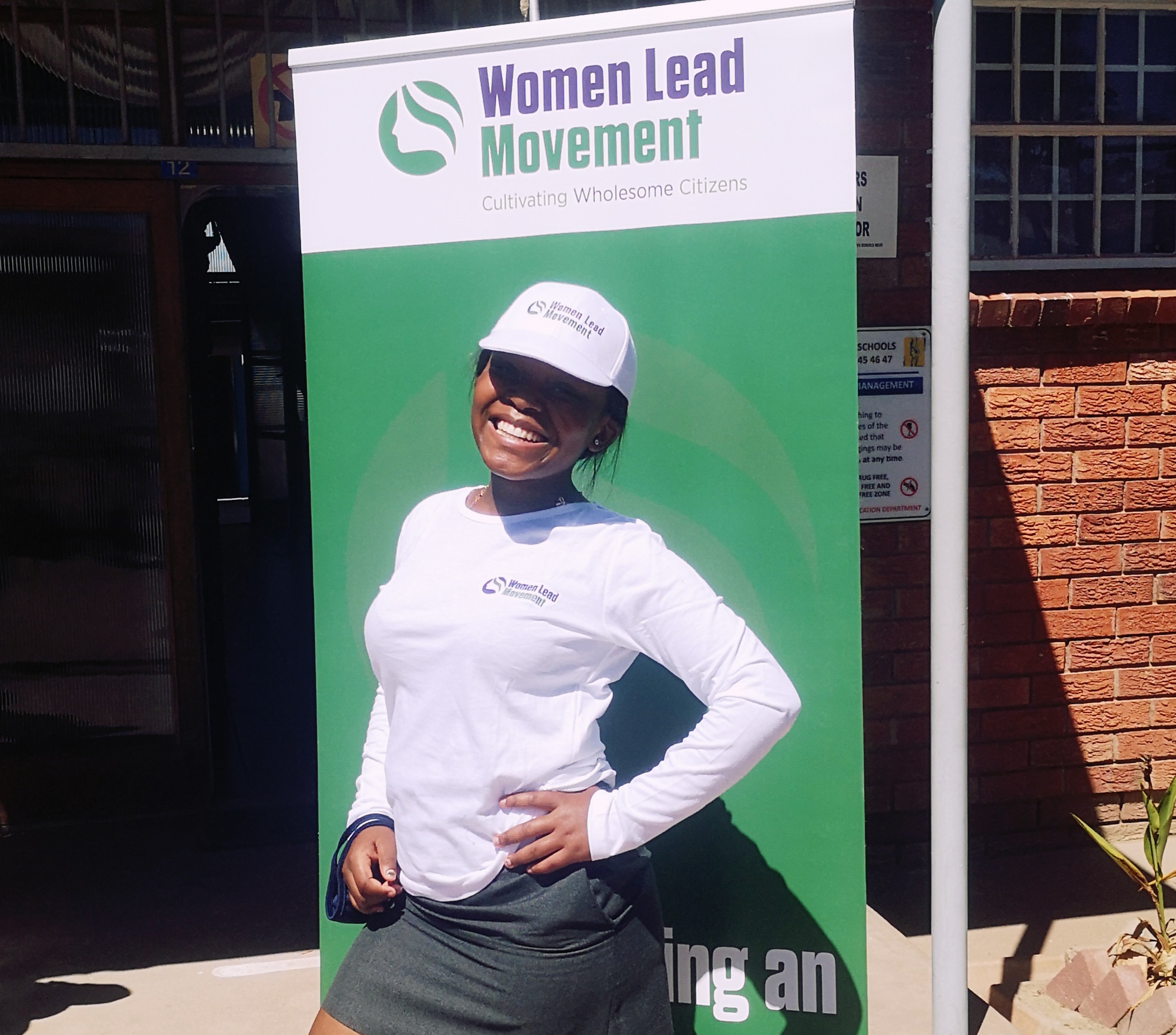





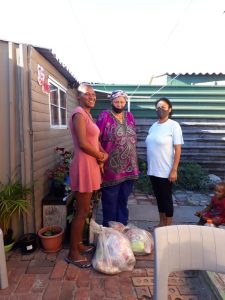


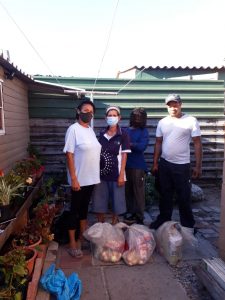


Due to the impact of the COVID pandemic in South Africa and globally, other shadow pandemics such as poverty and hunger were exacerbated. Poorer communities were particularly hard hit with high levels of unemployment and with schools closed most of the children did not get access to the nutritious meals they would otherwise have received through the School Feeding Scheme. Within this context, the food relief programme was a necessity, and more efforts must be made over the coming months to ensure that our communities do not suffer hunger. We have directly reached 100x households and 494 people through our food relief programme.


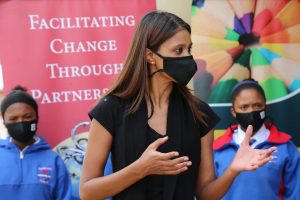
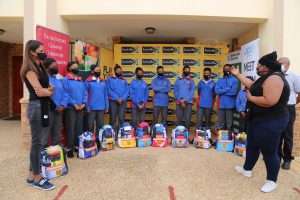




Women Lead Movement collaborated with Brand South Africa, Change Agents South Africa and FEDSAS to implement the Rural Schools Outreach. The programme was aimed at distributing Solar Powered Backpacks (including stationery and other essentials) to previously disadvantaged learners in the rural Western Cape schools situated in the Langeberg Municipality where the learners walk between 5km-10km a day order to get to the school bus. The Solar powered backpacks will convert the learners’ 5km-10km daily trip/walk into electricity and this can be used to power portable electronic appliances when they get home. We identified 20x learners from WA Rossouw Primary and Ashton Senior Secondary who are currently in Grade 8 and 9.



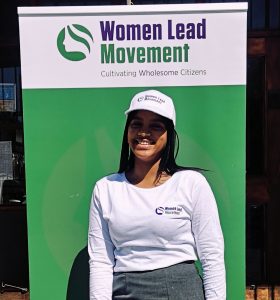
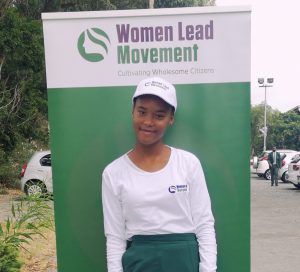
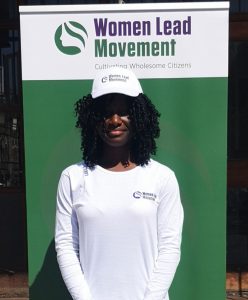
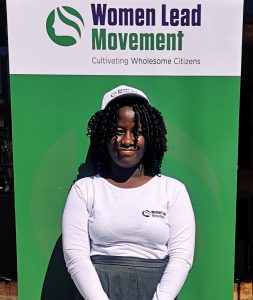

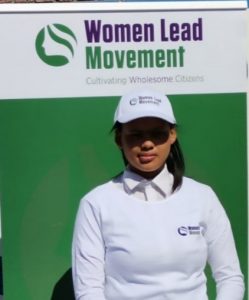
To ensure that we keep our girls in school this programme provided financial assistance and other support to girls who come for poor households. The COVID pandemic has had a far-reaching impact on communities especially learners who struggle to stay in school due to financial and other challenges at home. This project aimed to alleviate the additional burden of school fees and stationery these learners have because their parents are not by the financial means to provide. We directly reached 10x learners from previously disadvantaged communities and we hope that we will be able to assist more learners over the coming year
AREA 7: SOCIAL MEDIA CAMPAIGNS

